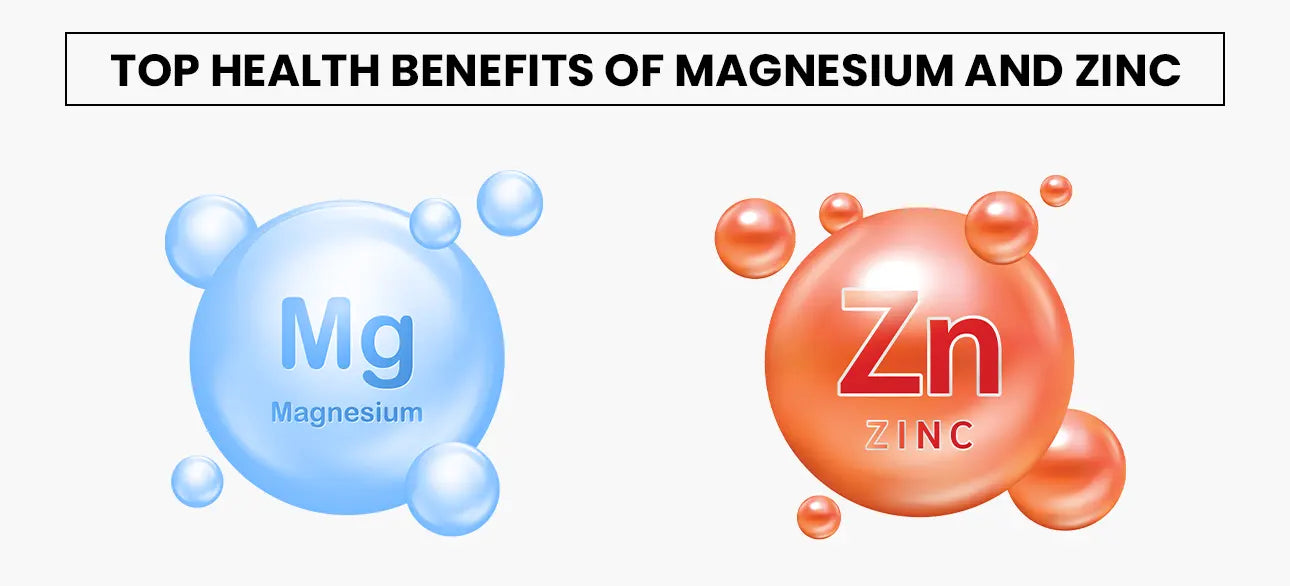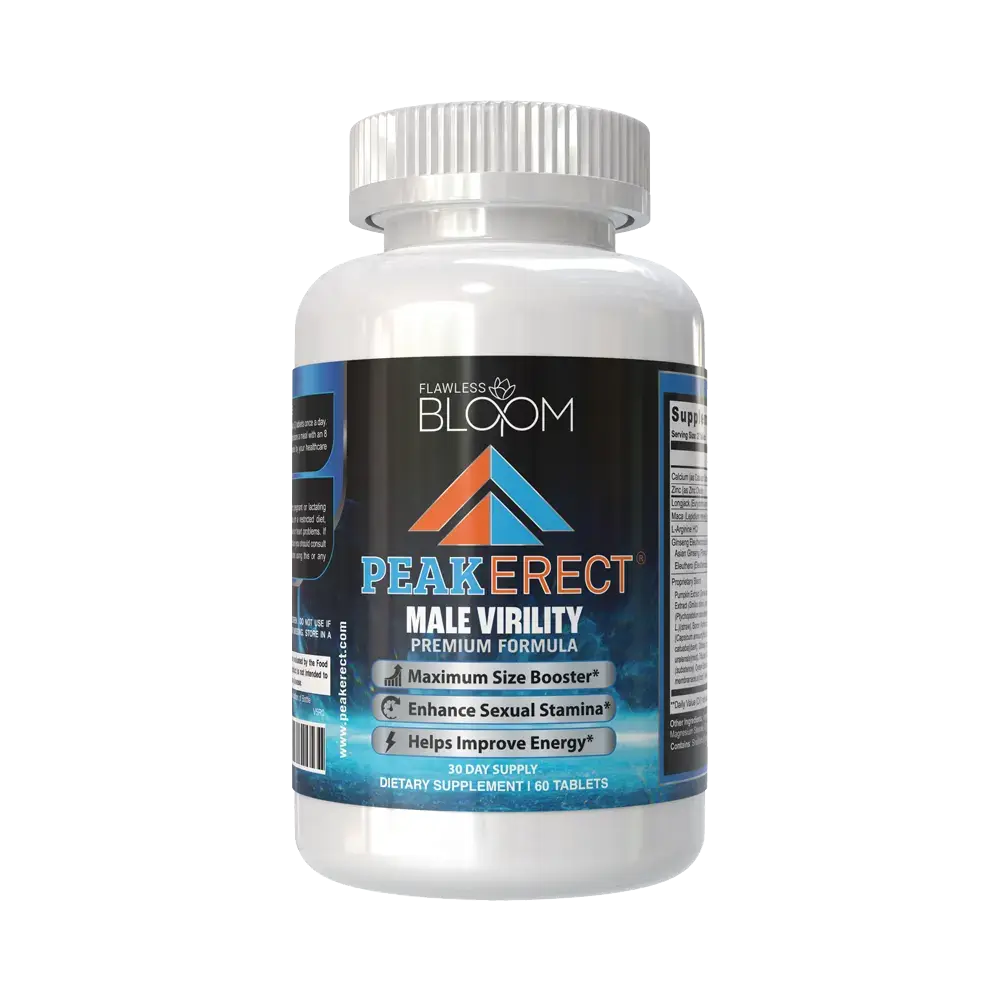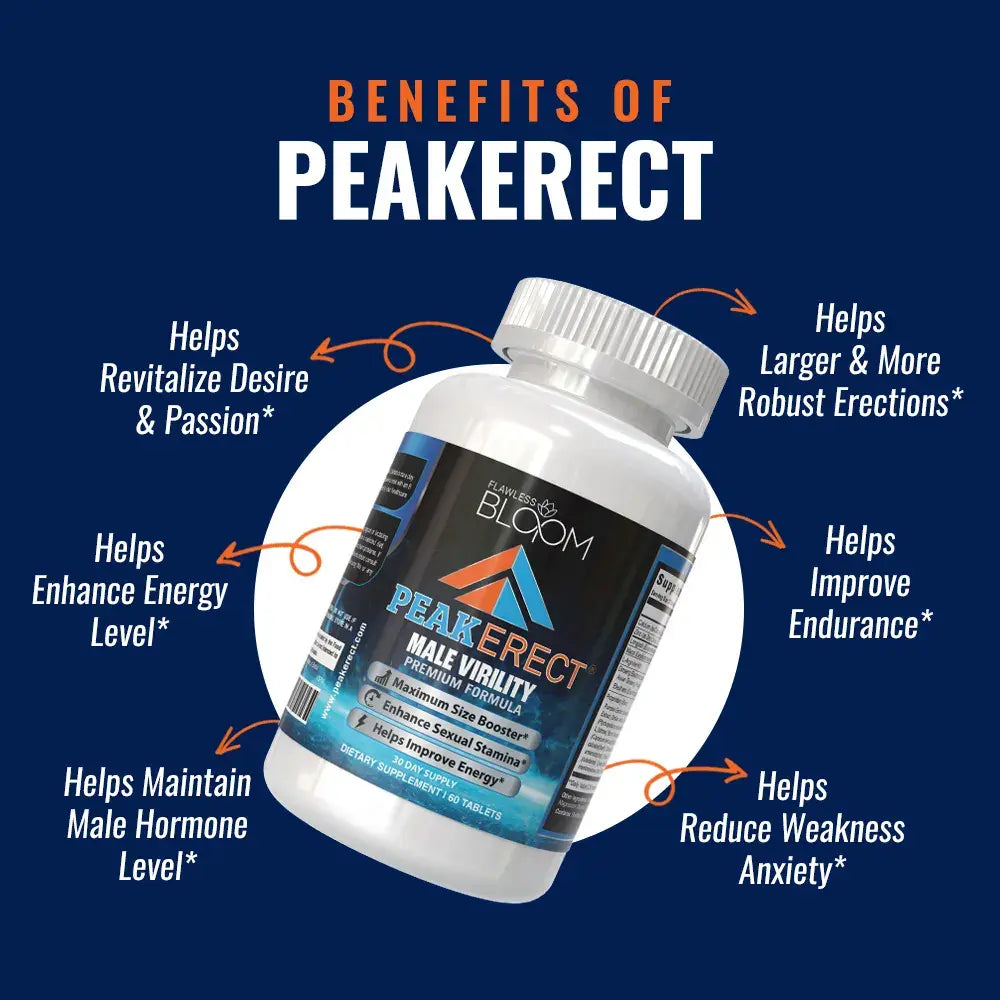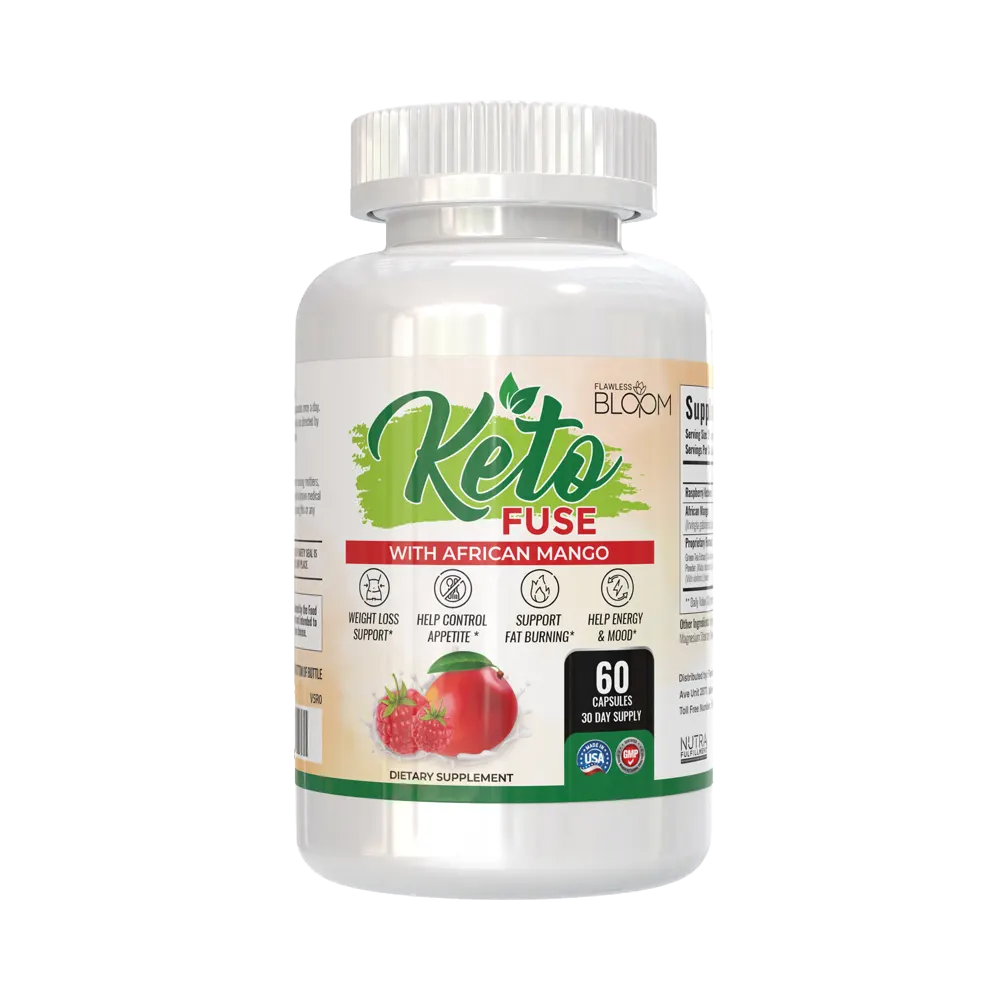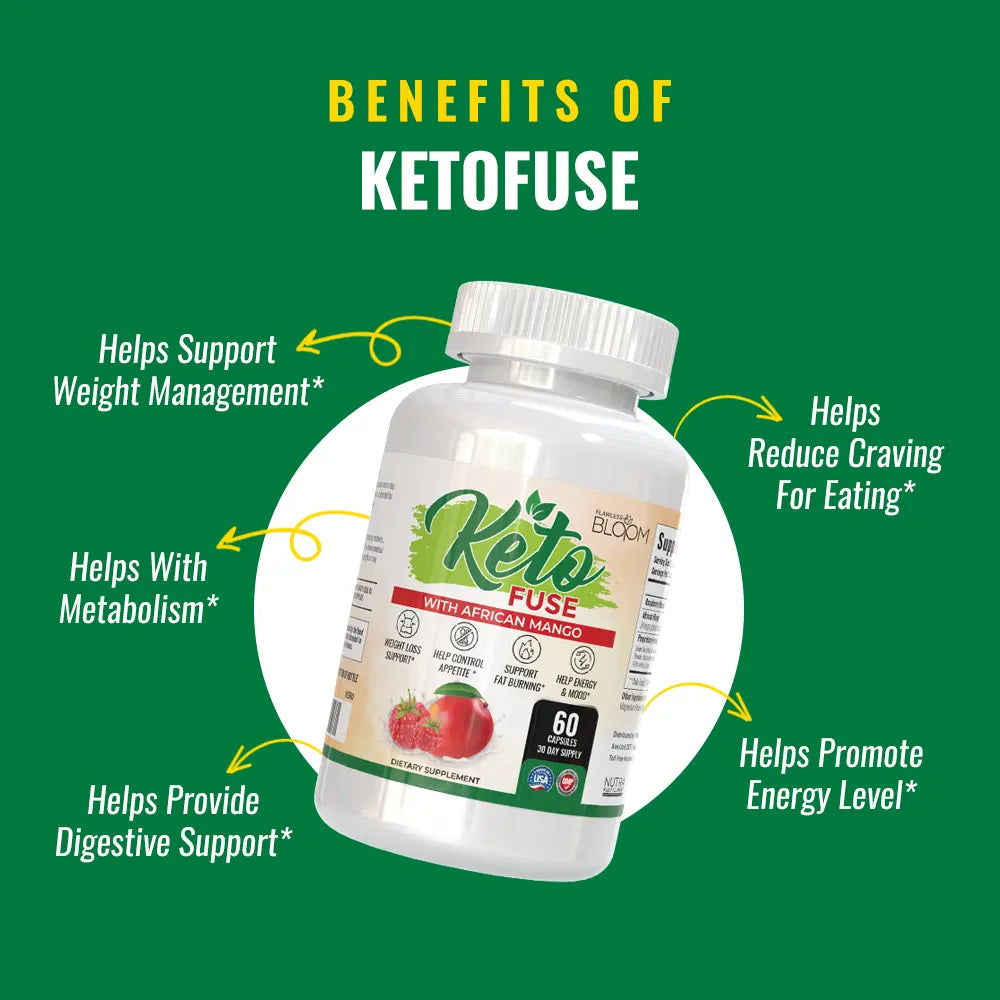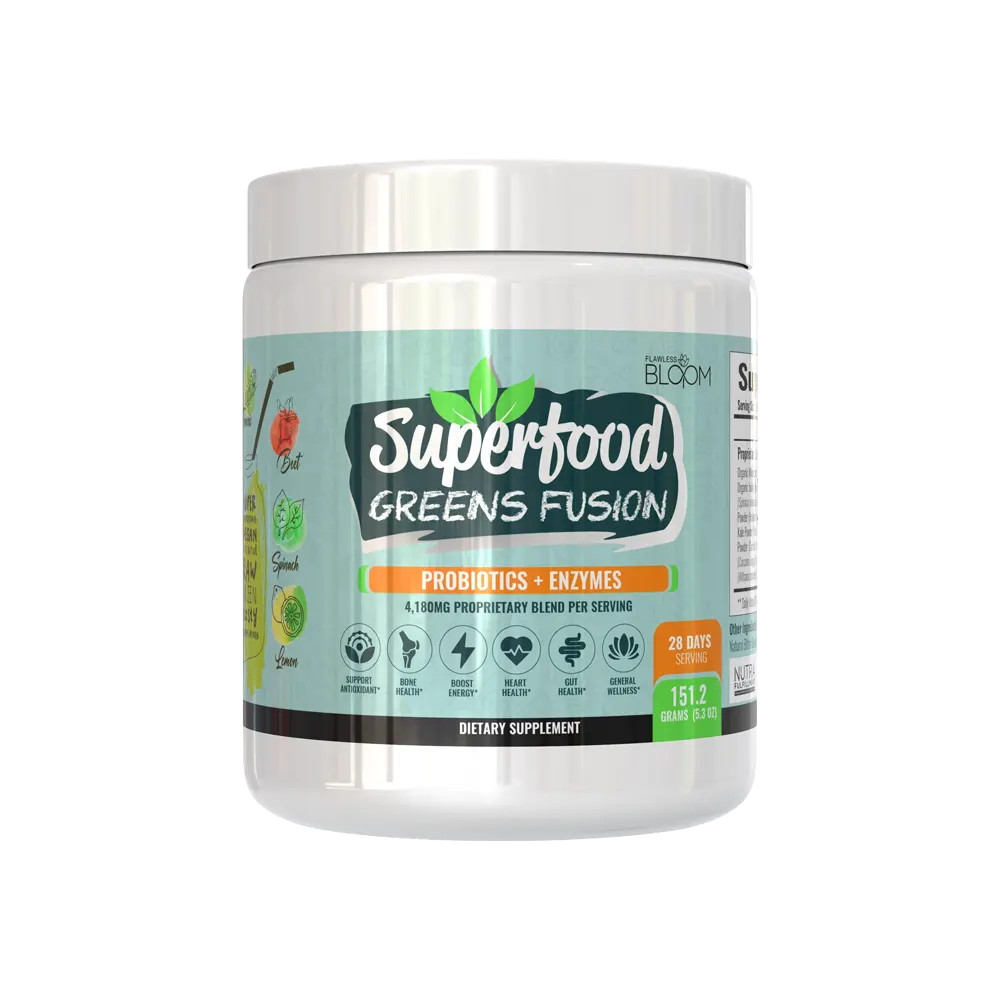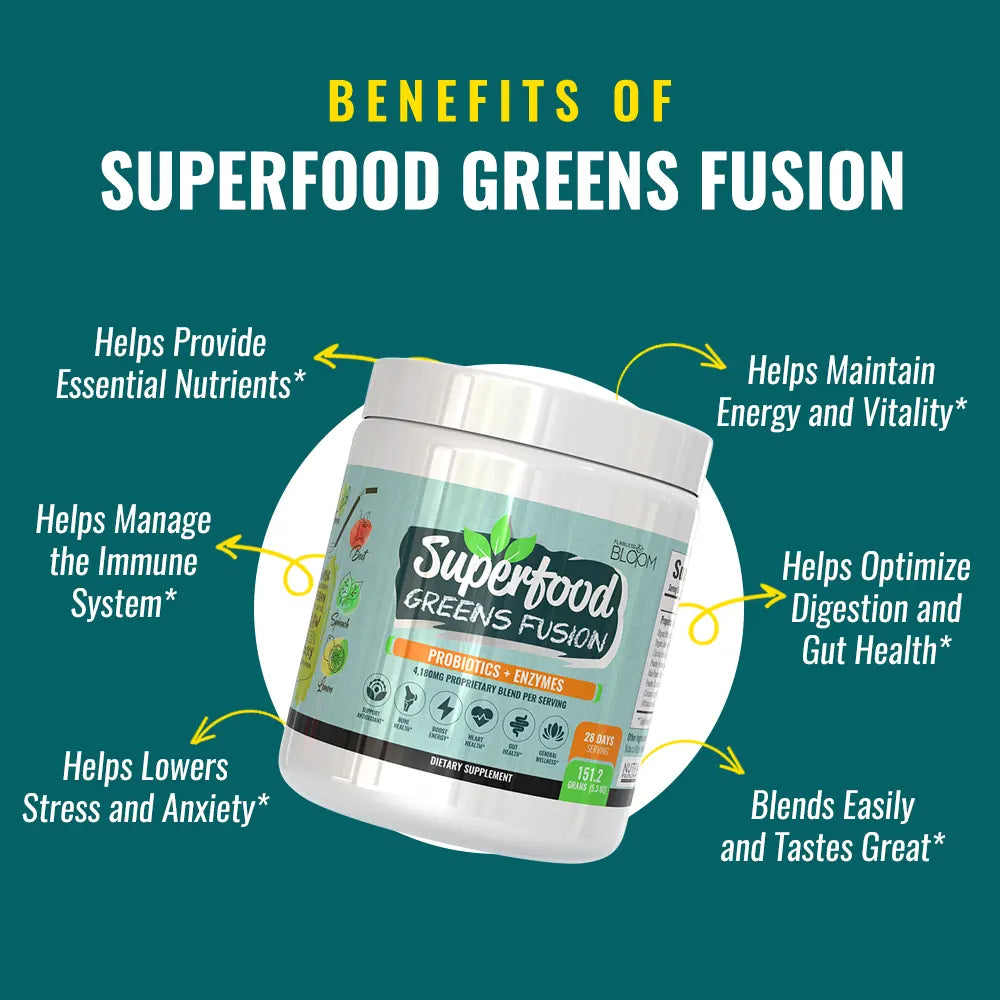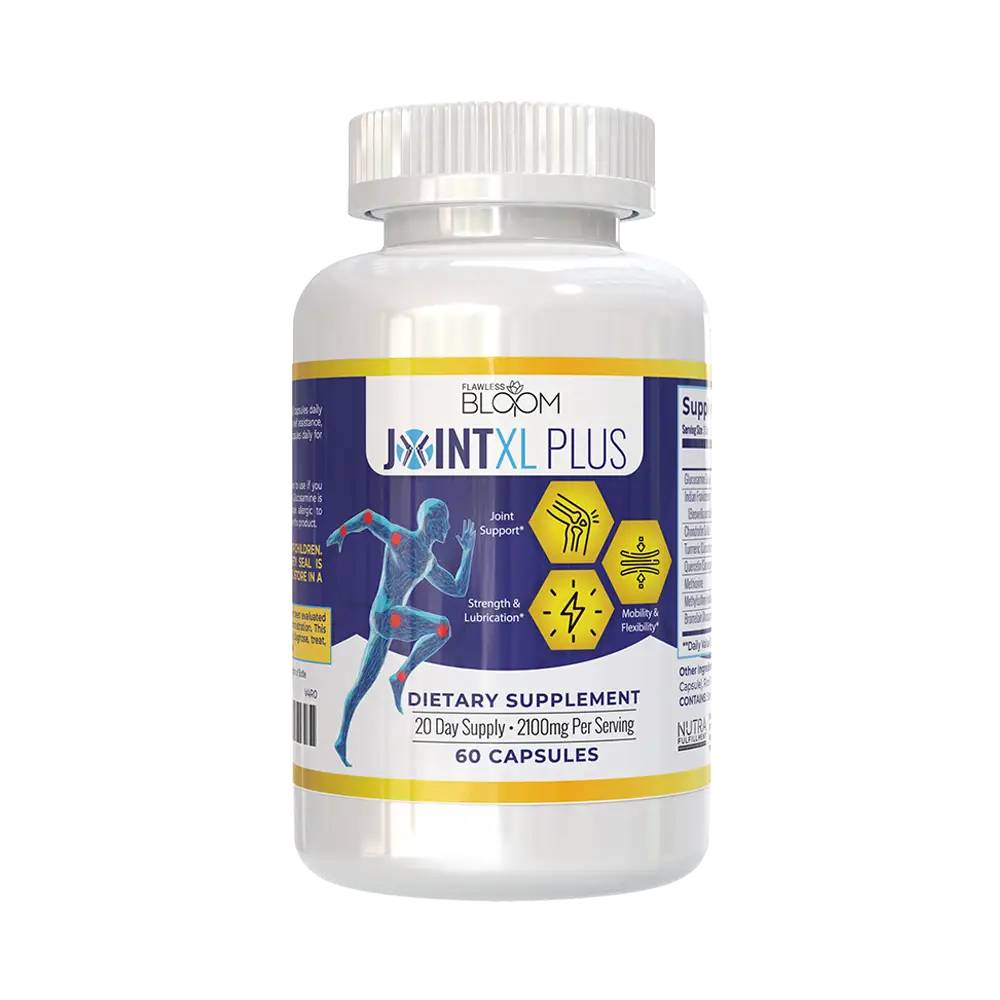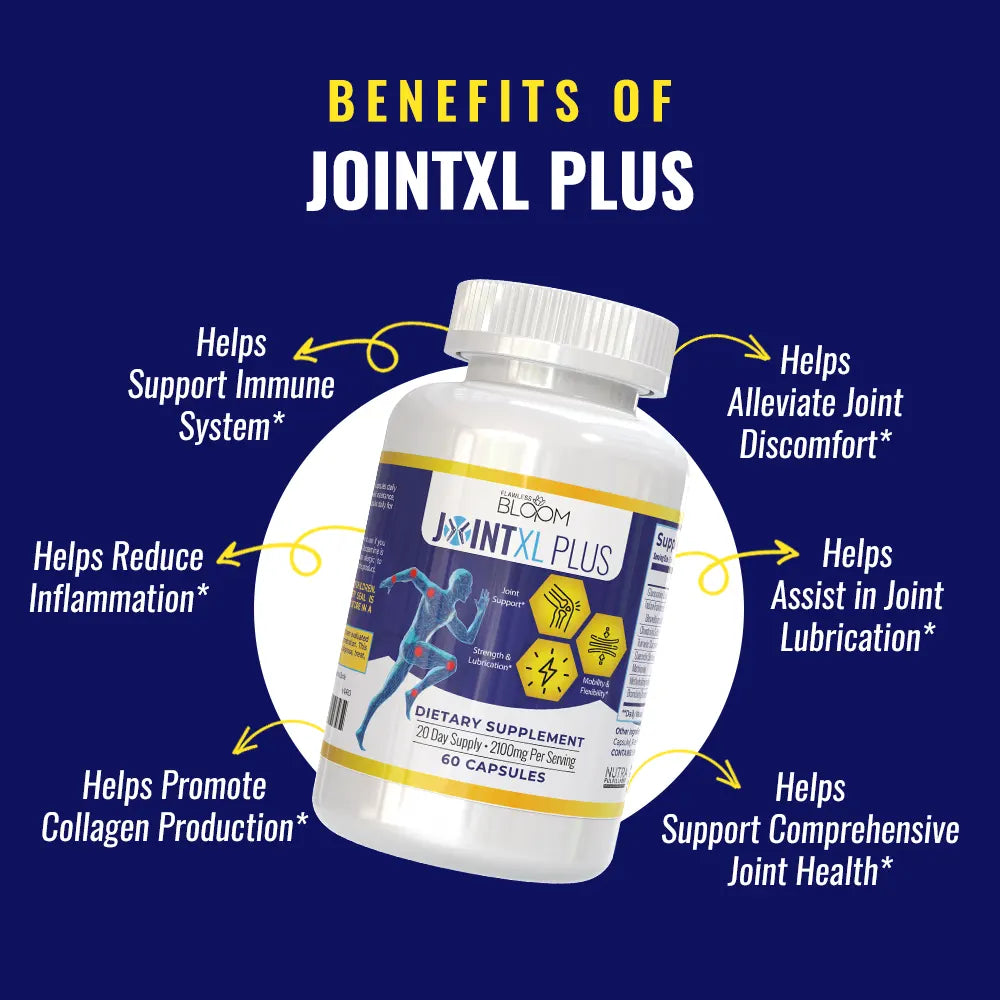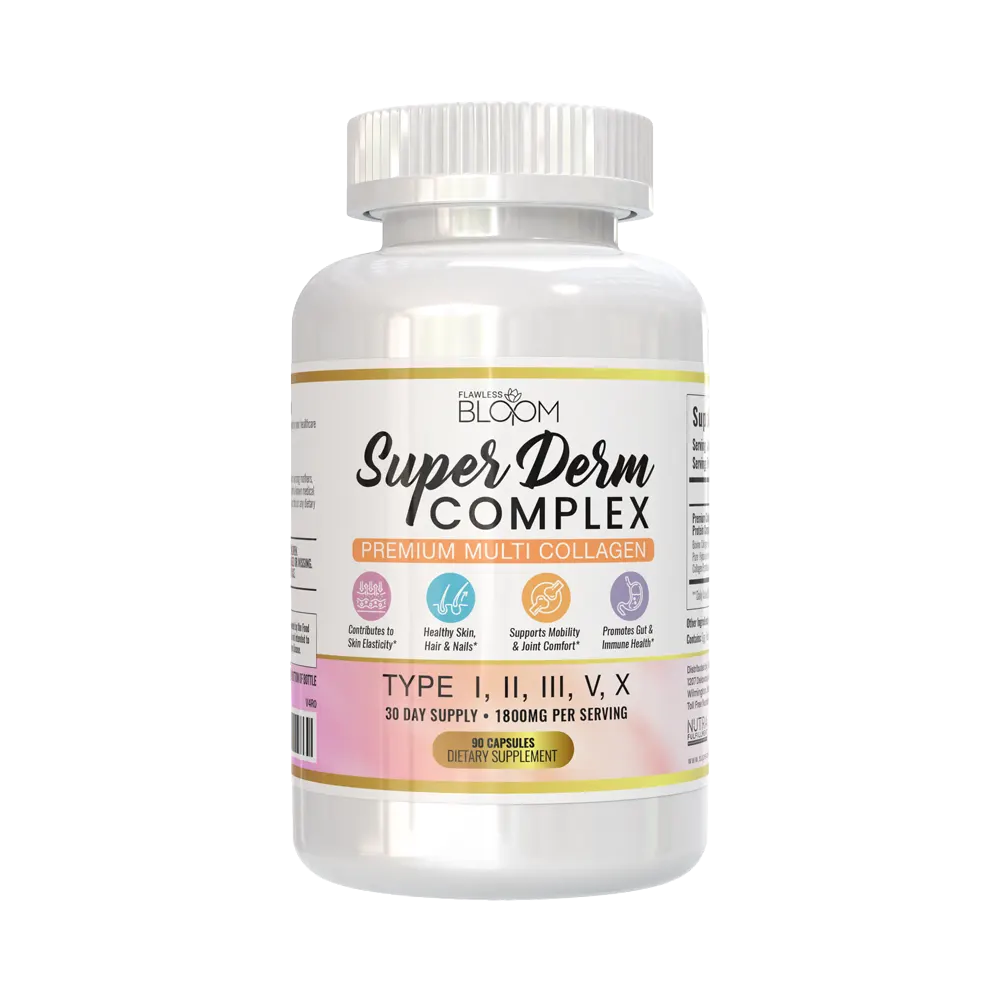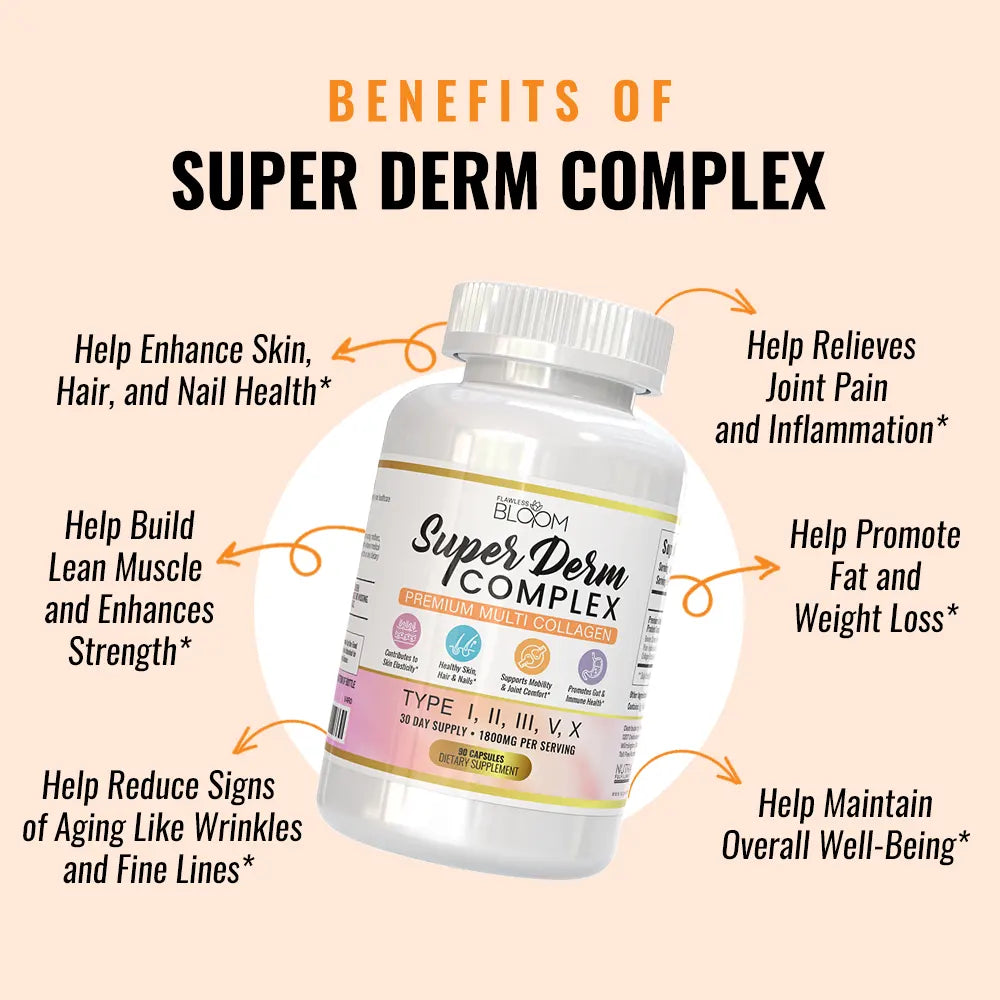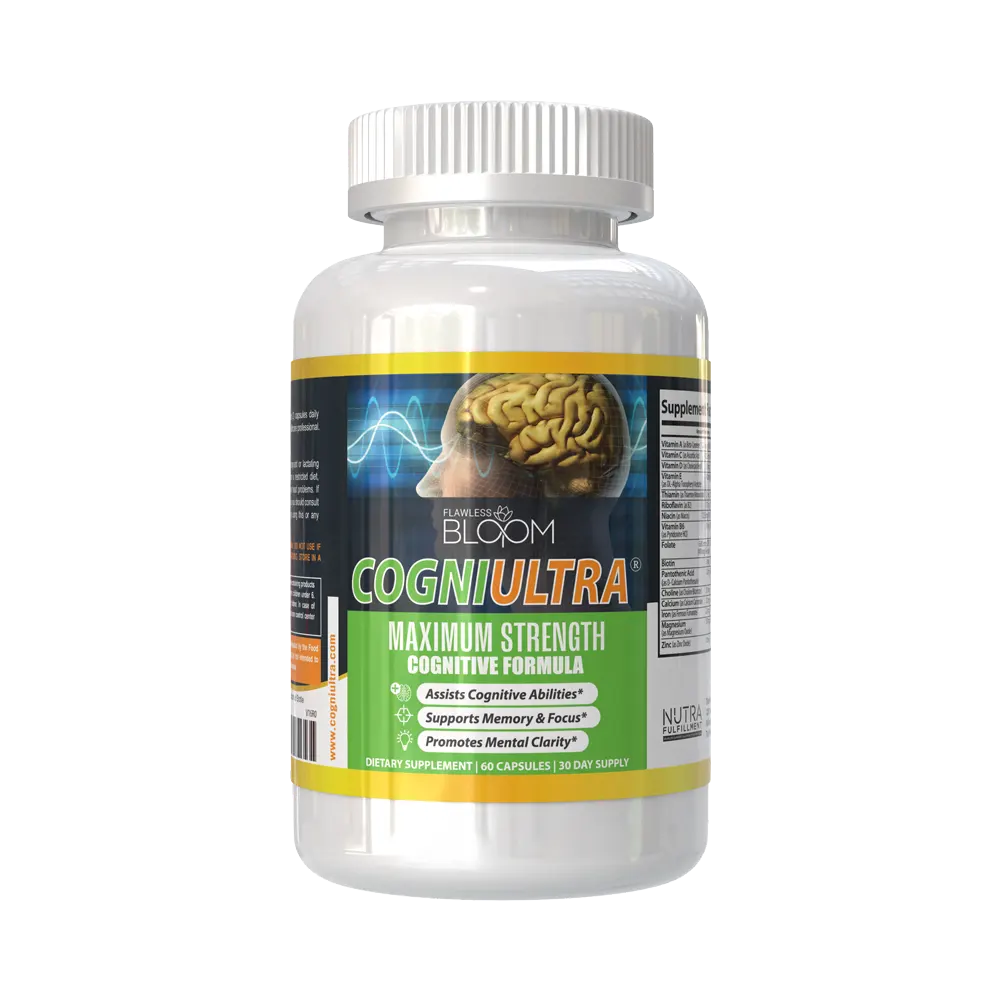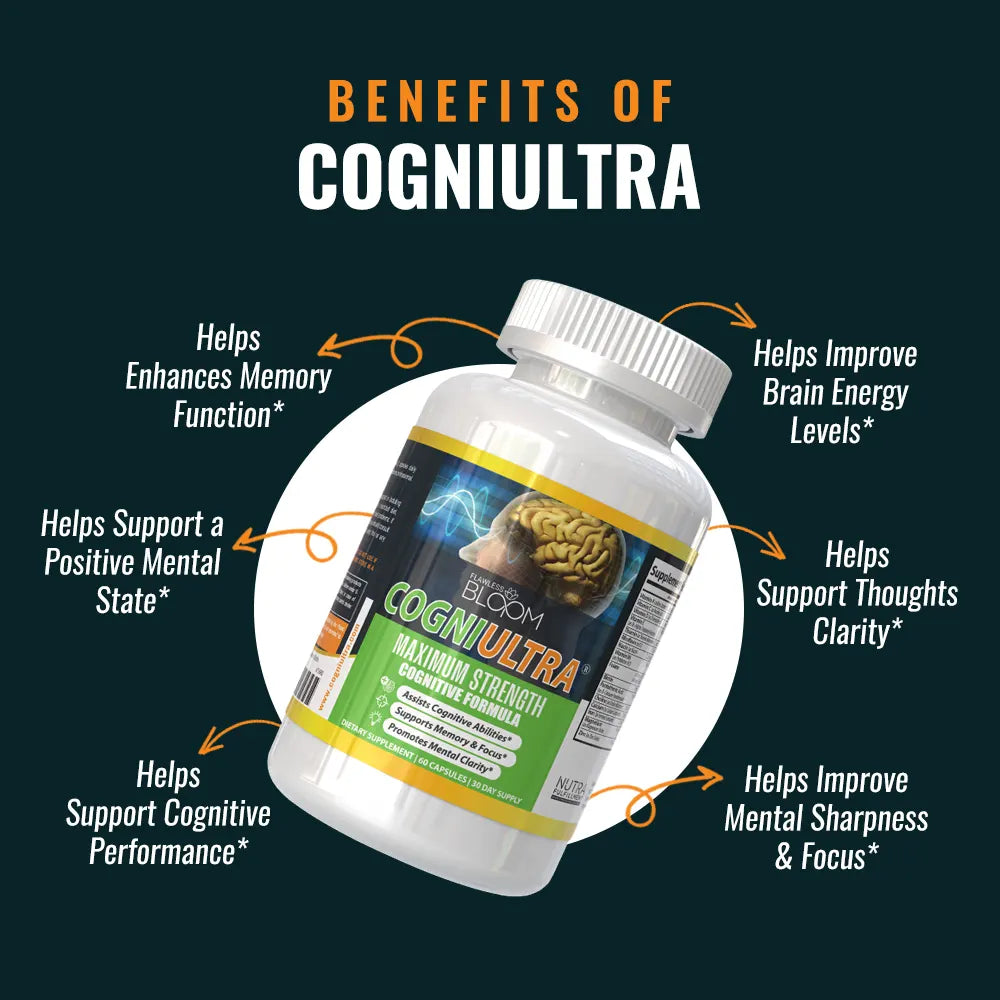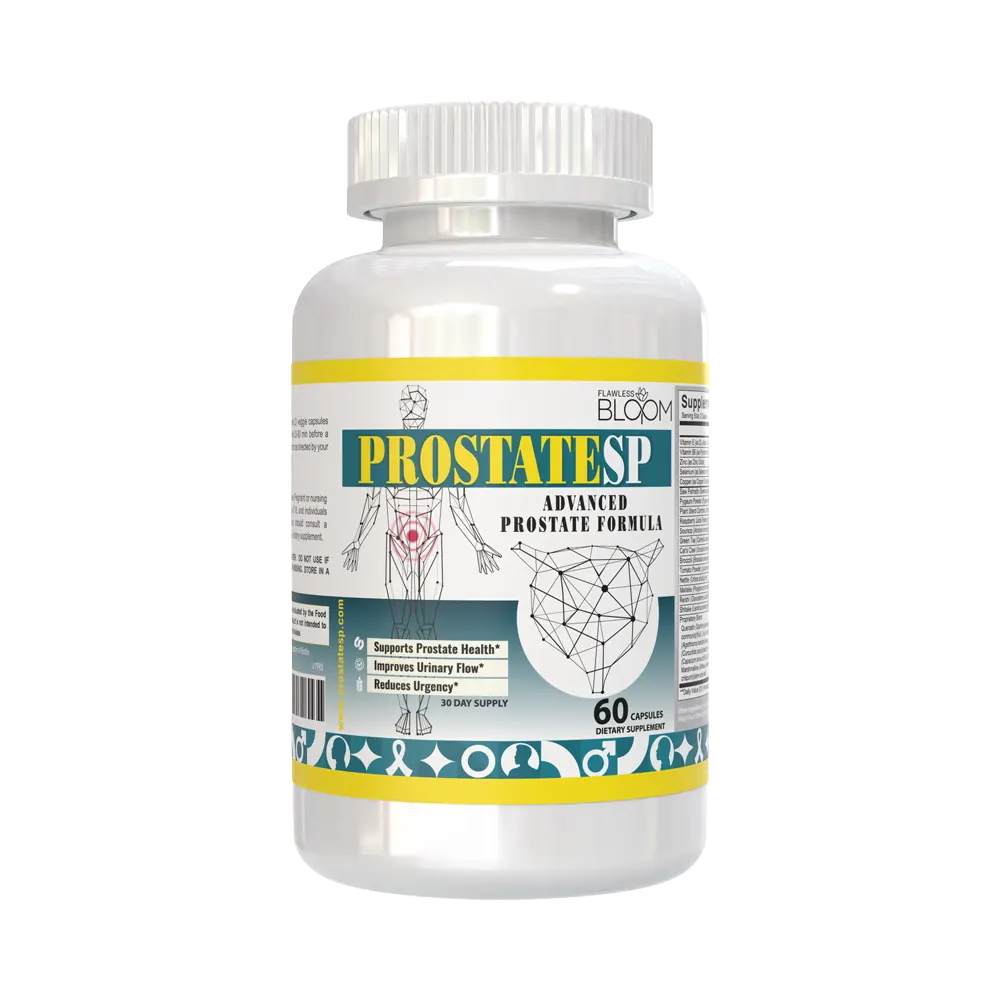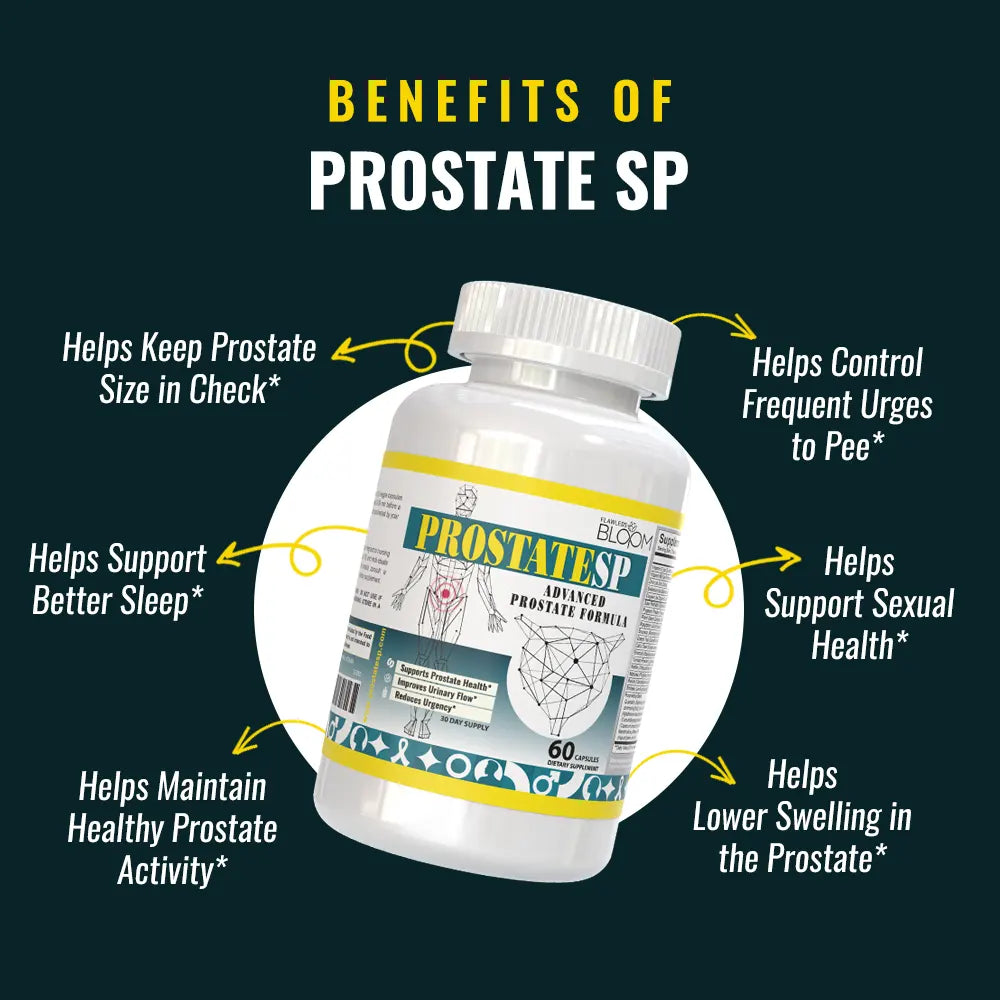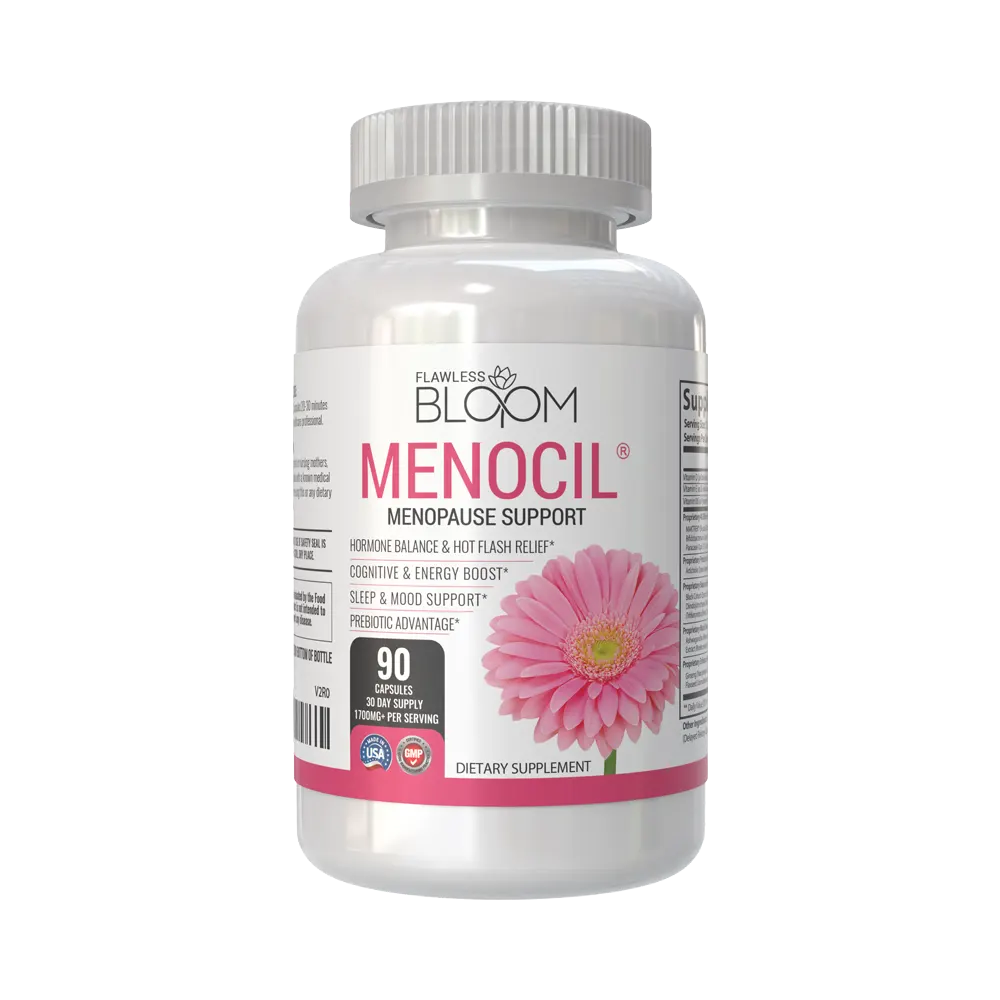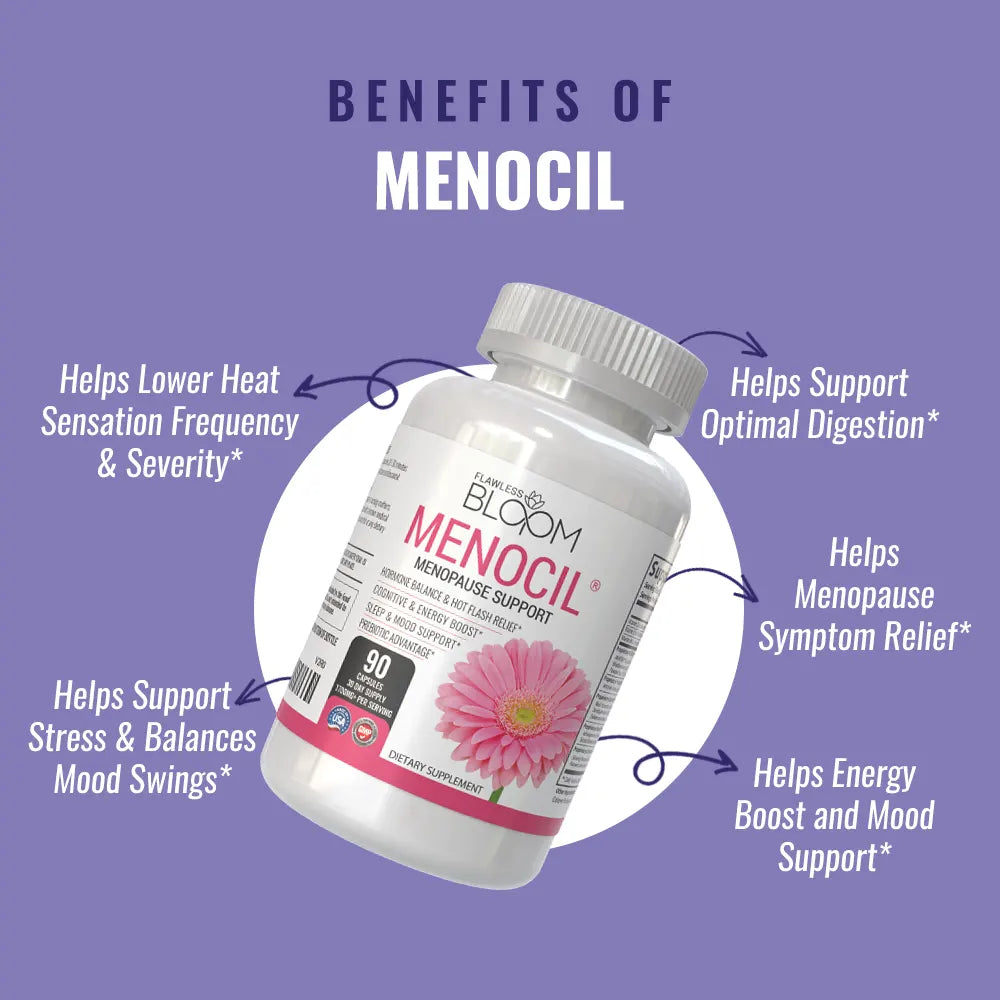16 Best Vitamins & Nutrients for Healthy Skin
In this comprehensive article, we discuss the top 16 vitamins and nutrients crucial for healthy skin, detailing their roles, dietary sources, and scientific backing for their benefits.
Advertiser Disclosure: We independently select all the products. If you click through links we provide, we may earn a commission.

What you eat has an impact on your skin health, from its texture and appearance to its aging rate. That is, aside from factors like genetics and environment, nutrition significantly impacts skin health.
Certain nutrients, like Omega-3 fatty acids, provide the building blocks for healthy skin cells, allowing the skin to stay flexible, firm, and moist.
Vitamin C is essential for collagen production, which improves the firmness and elasticity of the skin.
Antioxidants neutralize free radicals and protect the skin from damage, preventing the appearance of wrinkles and fine lines, premature skin aging, and skin cancer.
A well-balanced diet will positively impact the texture, appearance, and overall health of your skin.
But before we move forward, let's take a look at this YouTube video by “ simpleshow” on the importance of vitamins to the human body.
Vitamins & Nutrients for Healthy Skin
Now, some of the best vitamins and nutrients for healthy skin include;
 Vitamins & Nutrients for Healthy Skin
Vitamins & Nutrients for Healthy Skin
1. Vitamin A
Vitamin A supports skin cell production, turnover, and repair. As a potent antioxidant, it protects the skin from sun damage, reducing the appearance of wrinkles and fine lines.
Vitamin A contains retinoids, which help in managing skin aging and acne. A review article by Tamia and Roche in the Journal of Nutrients discusses the role of Vitamin A in skin immunity and wound healing.
Found in: Kales, Spinach, Carrots, Sweet Potatoes, Eggs, Liver, Fish, and Dairy.
2. Vitamin C
Vitamin C is essential for the synthesis of collagen, the protein that gives skin its structure, firmness, and elasticity. It is also beneficial in skin healing and complexion brightening.
Packed with antioxidants, it protects the skin against UV-induced photodamage. We see the roles of Vitamin C in skin Health extensively discussed in an article from the Nutrients Journal.
Sources include: Strawberries, Citrus fruits like grapefruits, oranges, tangerines, and lemons, Broccoli, Spinach, and Bell Peppers.
3. Vitamin D
Vitamin D aids in skin cell growth and repair. A deficiency in Vitamin D may lead to skin diseases like Psoriasis, Eczema, Acne, Ichthyosis, Scleroderma, Vitiligo, and Rosacea.
Research done by Wedad and Rehab in the Journal of Advanced Research, states that Vitamin D inhibits cell proliferation and promotes cell differentiation and apoptosis, which leads to regulation of the skin’s sebaceous glands, photo-protection, and wound healing.
Obtained from: Sunlight, Fortified foods, and Fatty fish.
4. Vitamin E
Vitamin E is a potent antioxidant that protects the skin from oxidative stress and damage from free radicals, reducing the appearance of wrinkles and fine lines, preventing premature skin aging and sagging, and skin cancer.
It also has anti-inflammatory properties, making it beneficial in preventing acne and atopic dermatitis; as seen in a study by Guang Yang, et. Al, in the PLOS One Journal.
Found in: Nuts, Seeds, Fortified Cereals, Vegetable oils, Avocado, and Spinach.
A balanced diet rich in essential vitamins and nutrients is fundamental for achieving and maintaining healthy, radiant skin. What you eat truly reflects on your skin's appearance. Dr. Patricia Farris, MD
5. Omega-3 Fatty Acids
Omega-3 fatty acids help in maintaining skin hydration and elasticity. These healthy fats essentially protect the skin’s lipid barrier, preventing dehydration and irritation, and keeping the skin moist and flexible.
They also possess anti-inflammatory properties that help with skin conditions like acne, psoriasis, and eczema. An article in the Frontiers in Immunology journal discusses the various beneficial effects omega-3 fatty acids have on various skin diseases.
Sources include: Fatty fish, Walnuts, Chia Seeds, Avocado, and Soybeans.
6. Zinc
Zinc plays a significant role in supporting skin healing and regeneration. It reduces skin inflammation as it has anti-inflammatory properties. This mineral has been studied and proven to help with various dermatological problems.
It also reduces acne, helping in the maintenance of clear skin, by regulating oil production in the sebaceous glands. We see this in a review article by Ogawa et. Al, in the Nutrients journal.
But it is always a good idea to know how much zinc you should take, so talk to your doctor before you take it.
Present in: Meat, Legumes, Shellfish, and Whole grains.
7. Biotin (Vitamin B7)
This is a B7 vitamin known for promoting healthy skin, hair, and nails. It nourishes the skin and maintains its barrier function by enhancing the production of fatty acids.
Biotin deficiency, though very uncommon, causes brittle hair syndrome and skin infections. An article in the Dermatology Reports journal by Noura et. Al, explains how supplementation with biotin improves general skin, hair, and nails health.
Biotin-rich foods: Egg yolks, Milk, Grains, Nuts, Seeds, Oats, Sweet Potatoes, and Spinach.
8. Niacinamide (Vitamin B3)
Niacinamide is a type of Vitamin B3 that improves skin elasticity by building the keratin proteins that keep your skin firm. It also supports the skin’s lipid barrier helping stay moist.
It reduces skin redness or discoloration and helps in the management of some inflammatory skin conditions. In a review in the Medicina Journal, researchers Lara, Elisa, and Paola discuss the anti-inflammatory properties of niacinamide on skin health.
Available in: Eggs, Milk, Legumes, and Seeds.
9. Folate (Vitamin B9)
This is a form of Vitamin B9 that is essential for skin cell regeneration. It aids in reducing signs of aging and also hydrates the skin.
Folate supports DNA synthesis and this enables it to prevent skin cancer by reducing DNA damage on the skin caused by UV rays. This is explained in an article in the Sub-Cellar Biochemistry journal by J.D. Williams et. Al.
Rich sources include: Leafy Greens, Mushrooms, Beans, Yeast, and Citrus Fruits.
10. Vitamin K
Vitamin K helps in skin healing. It accelerates the repair of injured skin and minimizes bruising. A study published in the Indian Journal of Pharmacology, by Nader et. Al stated that Vitamin K significantly reduces the healing time of wounds, and also prevents scarring after healing.
It also reduces the appearance of dark circles under the eyes by reducing capillary leakage and improving the circulation of blood.
Found in: Leafy greens, Grapes, and Fermented foods.
11. Selenium
Selenium is a mineral with antioxidant properties that protects the skin from oxidative stress and sun damage caused by free radicals. This helps in the prevention of skin cancer and premature skin aging.
Its role as an antioxidant is well discussed in an article by Pincemail and Meziane, in the Antioxidants journal. It is also an anti-inflammatory and reduces swelling, irritation, and redness on the skin.
Sources include: Brazil nuts, Seafood, Mushrooms, and Whole grains.
12. Lycopene
Lycopene is an antioxidant that protects the skin from UV damage. This links lycopene to skin cancer prevention. It also has anti-inflammatory functions and this helps in preventing skin inflammatory conditions.
In the Oxidative Medicine and Cellular Longevity journal, various researchers discuss the benefits of Lycopene on the skin and general human health.
Present in: Tomatoes, Red Peppers, Apricots, Watermelons, Pink Guavas, and Pink Grapefruits.
13. Vitamin B5 (Pantothenic Acid)
Vitamin B5 contains moisturizing agents that hydrate the skin. They also smooth the skin by shedding dead cells, creating room for new cells.
This vitamin also helps restore the damaged skin barrier from over-exfoliation. Studies suggest that Vitamin B5 also supports wound healing.
Pantothenic acid may also promote the growth of thick, long, and strong hair. It prevents cellular aging and loss of hair.
Found in: Avocadoes, Eggs, Milk, Yoghurt, Vegetables, Beef, Chicken, and Whole grains.
14. Vitamin B6 (Pyridoxine)
Vitamin B6 is essential for skin maintenance and development. Skin conditions such as seborrheic dermatitis are said to be associated with a deficiency in Vitamin B6. It also helps synthesize collagen formation.
A study in the Dermatology Reports Journal by Miriam et. Al stated that low levels of pyridoxine increase inflammation that causes seborrheic dermatitis due to the inhibition of protein metabolism.
Sources include: Poultry, Fish, Meat, Fruits, and Vegetables.
15. Vitamin B12 (Cobalamin)
Vitamin B12 aids in promoting healthy cell growth. This helps in the reduction of wrinkles, fine lines and other signs of aging. It also helps in maintaining the moisture balance of the skin by supporting collagen production.
Cobalamin may help reduce hyperpigmentation. A study in the Journal of Dermatology reports stated that a Vitamin B12 deficiency may manifest as eczema or hyperpigmentation.
Found in: Liver, Meat, Dairy, and Fortified cereals.
16. Magnesium
Magnesium is a mineral that improves skin hydration and elasticity. It helps in maintaining healthy levels of essential fatty acids through the regulation of sebum production, thus preventing dry skin.
It also prevents inflammatory skin conditions like acne, eczema, and psoriasis. A 2023 study on Magnesium by Mary and Sandeep stated that topical administration of magnesium may reduce hyperpigmentation and photo-aging.
Sources include: Almonds, Spinach, Tofu, Avocado, Salmon, and Legumes.
Conclusion
Research has demonstrated that certain vitamins and nutrients have an integral part to play in the health of your skin. A balanced diet rich in these essential nutrients is a good foundation for attaining and maintaining healthy and glowing skin.
Changes in the appearance of your skin, like hyperpigmentation, breakouts, uneven skin tone, and premature signs of aging, may be caused by an underlying vitamin deficiency, as we have discussed in this article.
Including Best Foods for Healthy Aging in your daily diet can significantly contribute to tackling these skin concerns from the inside out.
Pairing your topical skincare products with a daily diet packed with some of these essential vitamins and nutrients will take your glow to the next level. Today, choose to tackle your skin concerns from the inside out.
FAQs
References
Flawless Bloom has strict sourcing policies and relies on primary sources such as medical organizations, academic institutions, governmental agencies, and peer-reviewed scientific journals. Read more about how we ensure our content is accurate, thorough, and unbiased by reading our editorial process.
- Role of Vitamin A in Skin Immunity and the Skin Microbiome https://pmc.ncbi.nlm.nih.gov/articles/PMC7909803/
- The roles of Vitamin C in Skin Health https://pmc.ncbi.nlm.nih.gov/articles/PMC5579659/
- Vitamin D and the skin https://pmc.ncbi.nlm.nih.gov/articles/PMC4642156/
- Vitamin E in chronic inflammatory skin diseases https://pmc.ncbi.nlm.nih.gov/articles/PMC8670689/
- Zinc and Skin Disorders https://pmc.ncbi.nlm.nih.gov/articles/PMC5852775/
- Vitamin B group levels in dermatology https://pmc.ncbi.nlm.nih.gov/articles/PMC10099312/
- Folate in Skin Cancer Prevention https://pmc.ncbi.nlm.nih.gov/articles/PMC3795437/
- Role of Selenium as an antioxidant https://pmc.ncbi.nlm.nih.gov/articles/PMC9686906/
- Omega 3 Fatty acid and Skin Diseases https://pmc.ncbi.nlm.nih.gov/articles/PMC7892455/
- Wound healing effects of Vitamin K https://pmc.ncbi.nlm.nih.gov/articles/PMC6533928/
- Lycopene https://pmc.ncbi.nlm.nih.gov/articles/PMC8626194/
- Magnesium https://www.ncbi.nlm.nih.gov/books/NBK519036/


